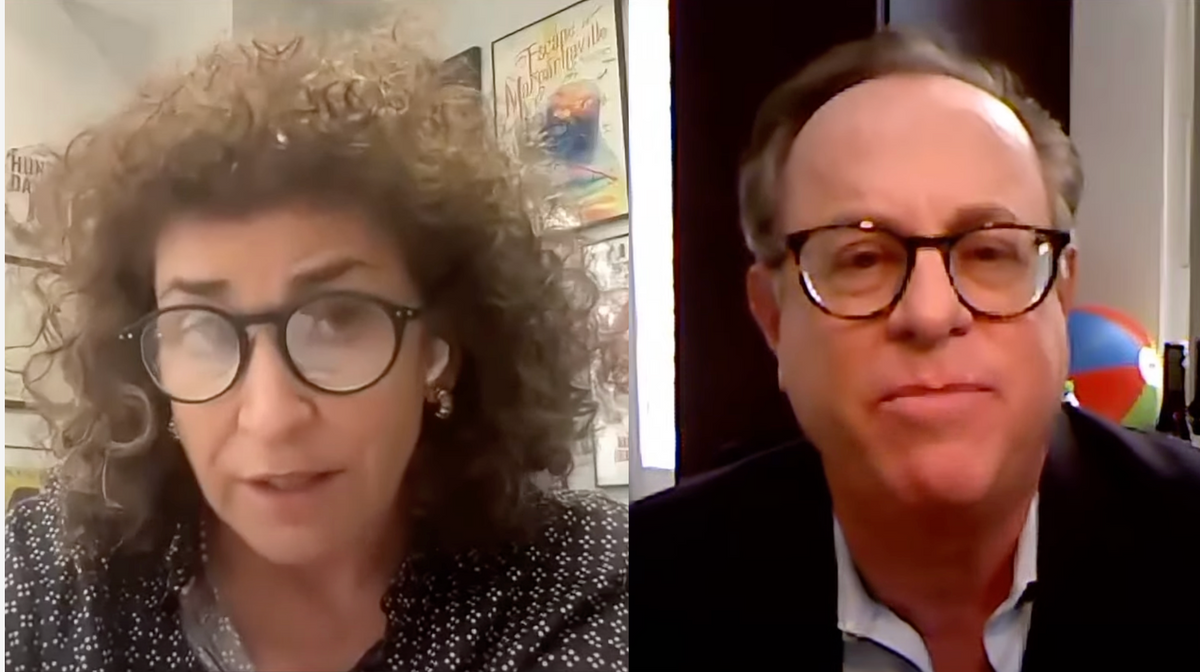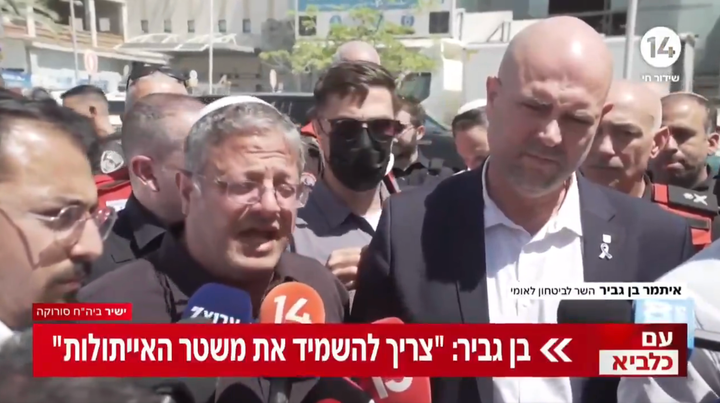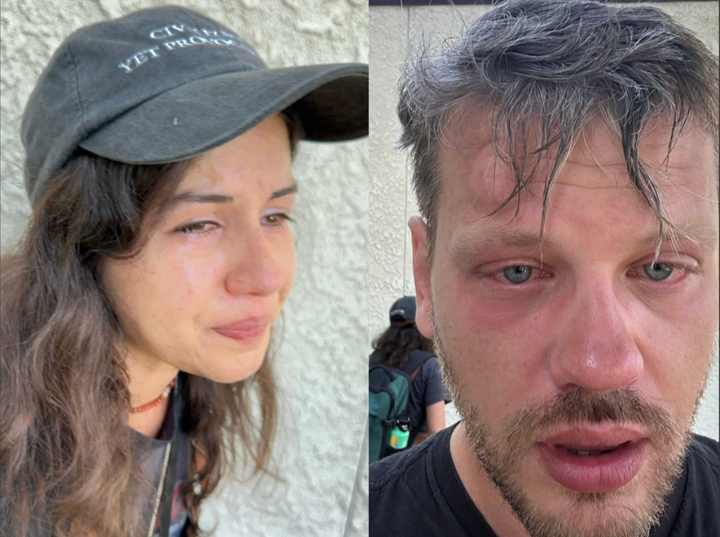Attorneys, Journalists Who Visited Assange Respond To CIA Push To Dismiss Their Lawsuit Against Alleged Spying

The following independent journalism was made possible by paid subscribers. Take advantage of this discount offer and support The Dissenter Newsletter today.
Attorneys and journalists, who were allegedly spied on by the CIA and former CIA director Mike Pompeo, responded to the CIA and Pompeo’s arguments for dismissal of their lawsuit.
The plaintiffs asserted that as United States citizens they had a reasonable expectation of privacy when they met with WikiLeaks founder Julian Assange in the Ecuador embassy in London. The arguments from the CIA and Pompeo demonstrate that they believe they are “above the law.”
Richard Roth, a lawyer representing the attorneys and journalists, reacted to “explosive” new information that confirms the CIA had a role in surveillance that targeted Assange and people who visited him.
“The CIA was actively involved in the solicitation of UC Global to, in fact, have it engage in its inappropriate conduct,” Roth said, as he referred to recent reporting from the Spanish newspaper El País. “For the CIA to allege that somehow we don’t have that nexus, call it naive or call it wrong.”
If a U.S. court accepts the argument from the CIA and Pompeo that the lawsuit does not sufficiently show that the CIA was involved, Roth mentioned that they asked the court to allow them to resubmit their lawsuit with recent revelations from El País.
In August 2022, four Americans sued the CIA and Pompeo: Margaret Ratner Kunstler, a civil rights activist and human rights attorney; Deborah Hrbek, a media lawyer who represented Assange or WikiLeaks; journalist John Goetz, who worked for Der Spiegel when the German media organization first partnered with WikiLeaks; and journalist Charles Glass, who wrote articles on Assange for The Intercept.
The filed complaint alleged that as visitors Glass, Goetz, Hrbek, and Kunstler were required to “surrender” their electronic devices to employees of a Spanish company called UC Global, which was contracted to provide security for the embassy. UC Global and the company’s director David Morales “copied the information stored on the devices” and shared the information with the CIA. Pompeo allegedly approved of the collaboration.
On June 4, the Spanish newspaper El País reported that UC Global director David Morales had a folder on his laptop marked “CIA.” Spanish police initially withheld 213 gigabytes of files in a criminal case against Morales that has unfolded as the U.S. government pursues Assange’s extradition on Espionage Act charges.
The plaintiffs’ response to the motion to dismiss [PDF] contends that Pompeo had a campaign against Assange that “included the downloading of the contents of mobile phones and laptops of Assange’s attorneys, doctors, journalists, and other visitors.” Allegedly, electronic devices were dismantled, SIM cards were photographed, and IMEI codes, a unique serial number that all mobile phones have, were logged.
While the CIA and Pompeo would like the public to believe that surveillance of Americans who visited Assange was merely “incidental,” plaintiffs insist that this argument is belied by the fact that there is testimony and evidence that the CIA and Pompeo “downloaded the contents of Plaintiffs electronic devices after they identified themselves as American citizens and prior to meeting with Assange.”
Glass, Goetz, Hrbek, and Kunstler had broken no law, and they were not suspected of a crime when they visited Assange, the response adds. They provided their passports, which identified them as Americans, when passing through a security checkpoint. Yet they still had their privacy violated.
To the argument that the plaintiffs do not have standing to sue, the response counters, “Plaintiffs have standing based on the government’s interception, copying and/or retention of records from an unlawful search.”
The CIA and Pompeo previously argued that Goetz, Glass, Hrbek, and Kunstler “cannot show they had a reasonable expectation of privacy with respect to conversations that took place on the property of a foreign embassy located in a foreign country."
“U.S. citizens who communicate with foreign surveillance targets have diminished Fourth Amendment rights [to privacy] that are easily overcome in the alleged circumstances at issue,” the CIA and Pompeo maintained.
However, the response to the CIA and Pompeo makes a crucial point: when these American journalists and attorneys visited Assange, he was not facing any public charges. Beyond standard vague suspicions, there was no reason for them to have a “diminished expectation of privacy."
“A sealed indictment against Assange was filed on March 6, 2018, and remained sealed until April 11, 2019,” the response recounts. “The Complaint alleges that Plaintiffs’ conversations with Assange and devices were searched and seized in [between] January 2017 and March 2018, a time-period during which there either was no indictment against Assange or during a time when the indictment was under seal.”
Furthermore, “Plaintiffs reasonably expected that their communications and devices would not be searched and seized in 2017 over conduct that occurred in 2010 without any charges having been filed.” (Most of the allegations against Assange stem from journalism he engaged in well over a decade ago.)
Hrbek pointed out during a press conference that in Pompeo’s memoir Never Give An Inch he mentions that he was browsing through the CIA's guidelines for extrajudicial killings while sitting with his family on December 23, 2017.
Given the Yahoo! News report on Pompeo's involvement in allegedly sketching plans to kidnap or kill Assange, that is remarkable. Also, around this time, the CIA and Justice Department learned of a plan by Ecuador and Assange's legal team (thanks to UC Global), which would have enabled Assange to finally leave the embassy for Ecuador.
The response concludes that the CIA and Pompeo's actions were part of an overall scheme to "use any means necessary—legal or illegal, constitutional or unconstitutional—to punish Assange and thereby discourage other journalists from exposing illegal activities by the United States government." And therefore, the plaintiffs should be given their day in court to argue their rights were violated.




Comments ()